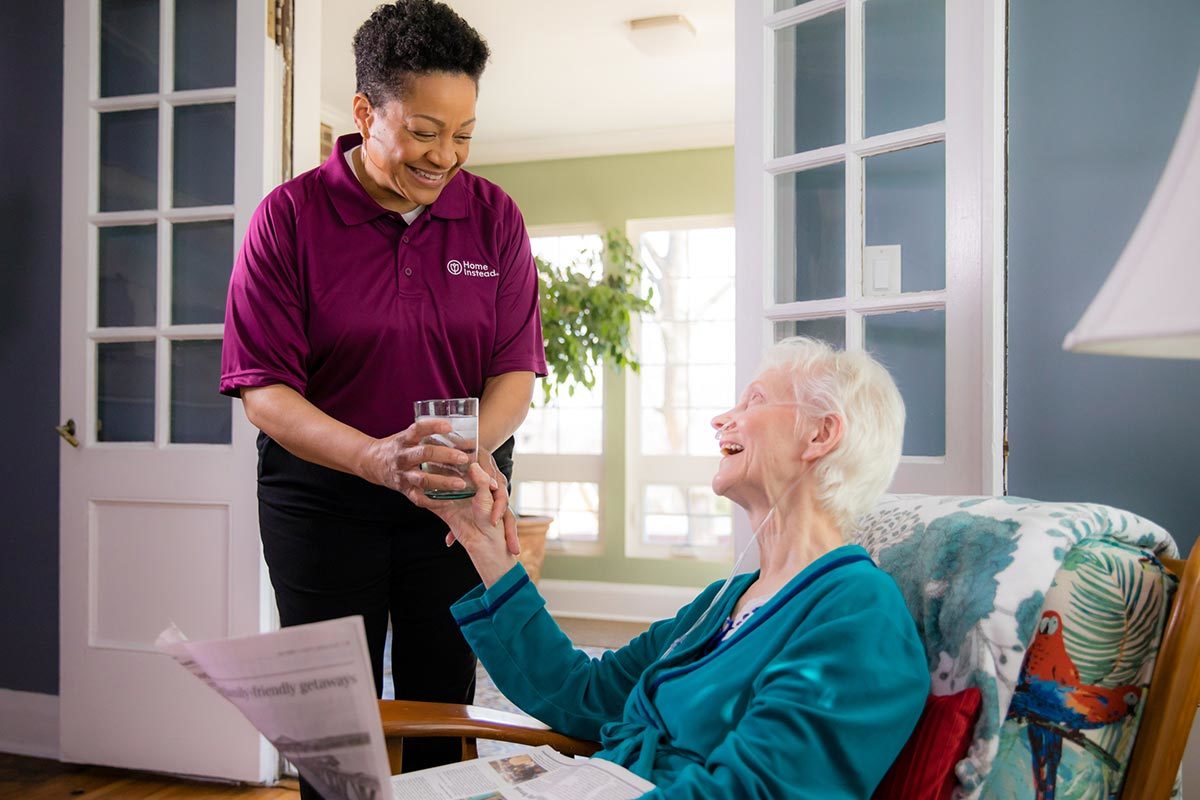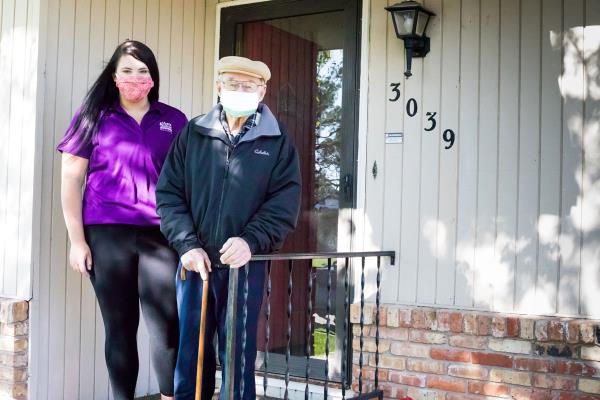Article originally featured in Politico
For the first time in history there are more people aged 65 years and older than there are aged five and under. At this rate, by 2050 one in six people will be over 65. I’ll let that sink in. Sixteen percent of the global population will be over retirement age within the next 30 years.
This is an incredible statistic and a true miracle of science, society and technology. It’s something we should all celebrate. Together we have created a healthier world that can provide cleaner water, nutrition, education, mobility and communication to more people than ever before. Our generation is more likely to live to see our loved ones realize their dreams, experience more historic moments and spend much more quality time together than any other generation. We are living our best lives.
The miracle of aging comes at a great cost to us all.
But here’s the problem – the miracle of aging comes at a great cost to us all. The growing needs of our elders will put great strain on our health and economic systems. We must evolve our approach to later life care. Older adults are more likely to succumb to health issues and care can be costly – and in some areas outright unattainable. The pandemic has served us this truth. Aging well isn’t just having the ability to indulge in post-retirement rounds of golf and spending more time with your grandkids. Aging well is having the means to live a happy and comfortable life, on your own terms – not written-off and invisible to society until a crisis.
As a society we need to be increasingly cognizant of the needs of an aging population and transform how we care for older adults.
Post-pandemic care
The pandemic has shown that care needs to drastically change to support later life. Not only the care industry, but the social perception of what care is. The 2021 report, Building the Caregiving Workforce Our Ageing World Needs, calls out three areas of later life care that have been expedited to prominence because of COVID-19. These are now crystal clear and unavoidable challenges of policy makers, private and public businesses, and organizations with health at their heart.
The pandemic has shown that care needs to drastically change to support later life.
1. The aging population is growing. Baby Boomers are turning 80. And globally, this population is expected to increase more than threefold between 2017 and 2050, rising from 137 million to 425 million. With that growth comes an increase in conditions such as Alzheimer’s disease and other forms of dementia that are linked to aging and a leading reason for later life disability and dependency. We need specialized care and highly trained caregivers.
2. Human connection is essential. The world is a global village. Our increased mobility now means families are smaller and often live with more physical distance. This in turn heightens the need for more human contact to limit loneliness and isolation. The pandemic has shown us that connections via Zoom or FaceTime are wonders, but technology will not replace the power of human contact. Technology cannot replace professional caregivers; they are essential to later life care.
3. The care chasm is widening. The world is experiencing a worrying shortage of professional caregivers – and it is growing. Caregiving as a career must be respected, rewarded and valued to invite more talent to the industry. We need to address this shortfall urgently to find talent now. Who and where are the caregivers for tomorrow?These three areas present an urgent crisis, but if we work together as an industry as well as at the individual organizational level, we can tackle the threat to later life care – starting by identifying and training the caregiving workforce of the future.
Home is the hospital of the future
The pandemic has catapulted technology into the health space. It has normalized speaking with doctors via video, accessing prescriptions through an app and downloading a meditation for better mental health – all in the comfort of your home.
Home is now the hospital of the future. This is true even for those with age-related conditions like Alzheimer’s disease where studies indicate that people who live with Alzheimer’s disease or other dementias are better for longer if they remain in their own home. To do this we need highly trained caregivers.
September is World Alzheimer’s Month, a time to drive awareness and educate the wider public. But the need doesn’t start and stop in a month for care. Expertise requires constant learning and development, from early diagnosis to end-of-life care so we can provide the right pastoral care to clients and their families. Having organizations and global experts at our fingertips is fundamental to the growth of our business. This month, Alzheimer’s Disease International (ADI) – leaders in this field – release a paper on the disease that will explore the importance of early diagnosis and improving long-term outcomes.
The more we learn about these conditions the better we can evolve caregiver training and support which means an individual’s personal wish to stay comfortably at home in their later years can be the reality. As a company that provides care for older adults, we have long seen the value of empowering older adults to age at home, especially with people living with dementias who fare better in their familiar surroundings. We pride ourselves on our person-centered approach to Alzheimer’s training for caregivers. The future of caregiving means being at the forefront of disease awareness and upskilling.
The future of care is now in our hands
Technology will never replace the impact of human connection and the role of professional caregivers when ensuring the mental, emotional, and physical health of older adults. Yet the future of care will fade without technology-enabled services.
Home Instead is a global leader in homecare, with more than 1,100 offices in 13 countries. We were recently welcomed into the Honor Technology family, a company with a shared passion for care and its future. As the leading home care technology and operations platform, together we will revolutionize the care industry by transforming the delivery and perception of care globally to meet the growing needs of the aging baby boomer generation and the generations to come.
Talent, training and technology are truly the future of care.
The technology we are bringing to our global Home Instead footprint in the coming years will make the care experience more personal and more interactive for clients, families and professional caregivers. And our Home Instead caregivers will have more autonomy over their hours and work patterns, as well as greater access to training.
The emphasis on talent, training and technology are truly the future of care. Perhaps the next miracle of aging is that the needs of later life will no longer be invisible until it’s too late. While it may have taken a pandemic to bring the world’s attention to what the home care industry has long known: Home care is vital, we are in an unprecedented position to forge a new path by professionalizing the caregiving workforce and evolving the aging experience for older adults.
But it’s not just the care industry. We can all make a contribution to the future of care. The next time you speak to an elder relative, show you care; it could be life changing.
For more information about Home Instead, Alzheimer’s care and additional care services please visit www.homeinsteadglobal.com.


